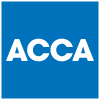Landlords in receipt of rental income in excess of £1,000 in a tax year are required to disclose this to HM Revenue and Customs (HMRC).
For various reasons rental income may not be declared sometimes landlords may simply not get round to it or perhaps are unaware that they have tax obligations.
If you become aware of undisclosed income it is always better to come forward to HMRC rather than wait until they catch up with you.
This article looks at the sources available to HMRC to identify undisclosed rental income and the Let Property Campaign which allows arrears of rental income to be disclosed in a simple cost effective manner.
HMRC have various sources to identify undisclosed rental income.
Stamp Duty Land Tax (SDLT), Land Registry and Electoral Register
SDLT is a department of HMRC and they also have access to HM Land Registry records. In both cases, HMRC are able identify, those that own multiple properties which will create a red flag if there has not been any rental income declared.
The electoral registry can also be used to identify who is living in a property.
Letting Agents
Many Landlords rent through a letting agent or use one to find tenants.
High street letting agents are required to make an annual report to HMRC identifying landlords, rental properties and income earned. Online agents such as Air BnB and other online holiday agents will provide details of their electronic payments to HMRC in an annual report.
Security Deposit
The Landlord is normally required to place any security deposit with a government approved deposit scheme. HMRC have access to these records and use them to confirm a rental agreement is in place.
Informants
Ex-spouses/partners, neighbours, colleague and disgruntled tenants have long been a rich source of information for HMRC.
The Let Property Campaign
Help is at hand for Landlords wishing to bring their affairs up to date. The facility allows all undeclared years to be disclosed on one form, penalties will be lower. It will normally be possible to arrange payment of the liabilities in instalments.
How we can help
We offer a wide range of business advisory services to help you make the right decisions for your business to grow and improve.
If you would like to know how Loucas can assist you, please do not hesitate to contact us.




